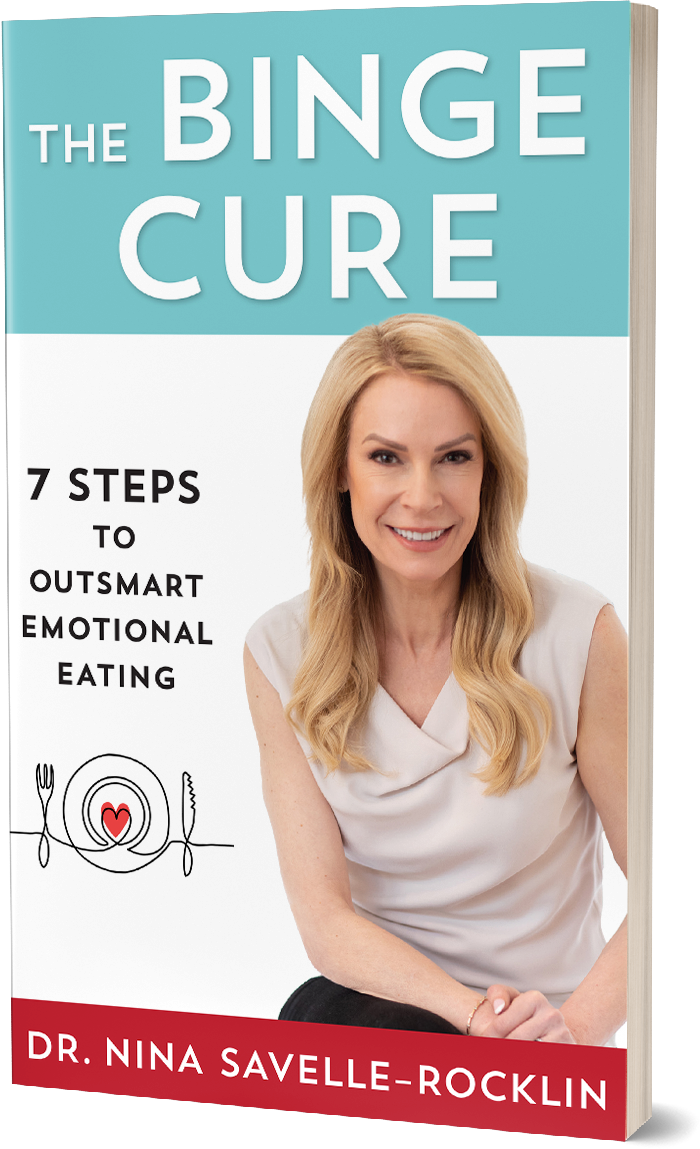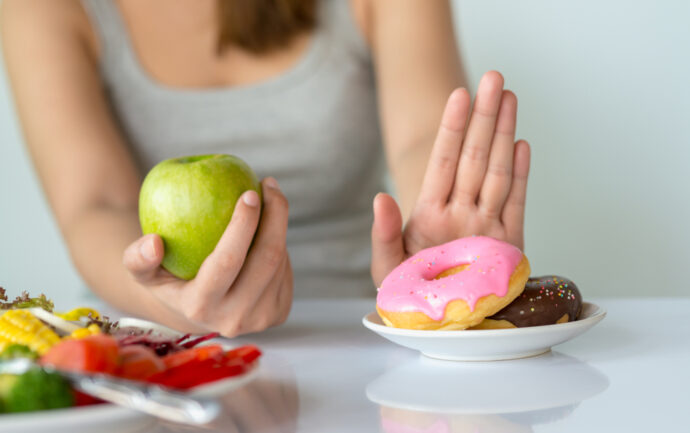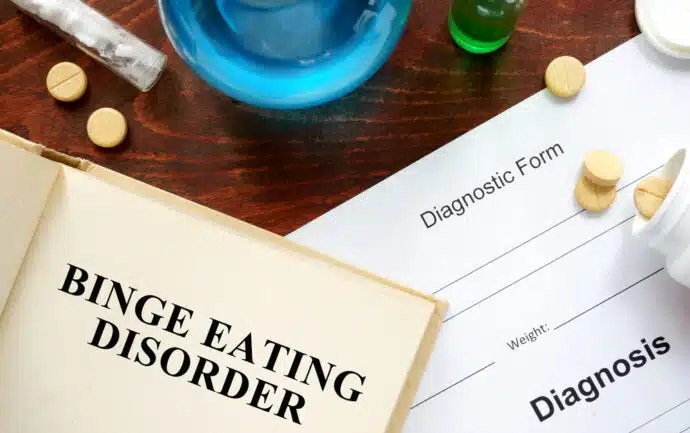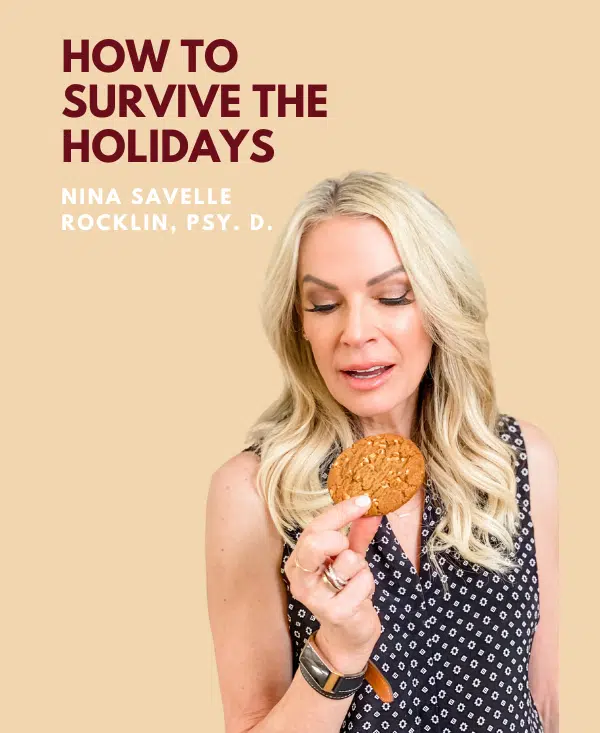Dr. Nina Savelle-Rocklin
How Binge Eating Affects the Body
Table of Contents
Binge eating can take a toll on your body both mentally and physically. Of course, there are the obvious outcomes of weight gain and the possibility of obesity, but there are some other effects that aren’t so obvious. In this article, we will discuss how binge eating affects the body.
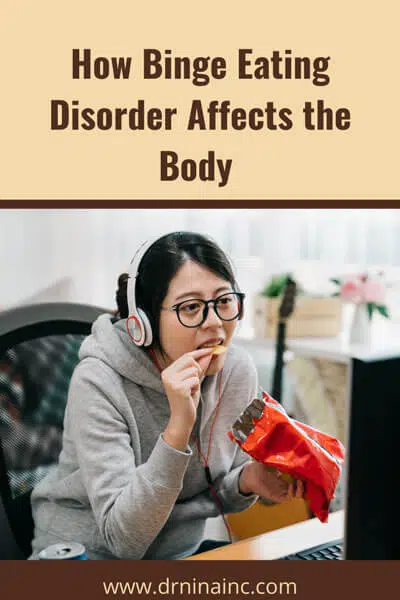
What are the Binge Eating Effects on the Body?
Binge eating definitely affects both our emotional wellbeing and our physical well-being. It’s easy to focus on the obvious impact such as weight gain, high blood pressure, Type 2 diabetes, and cardiovascular disease, but not everyone who binges is obese or experiences these effects. People who struggle with binge eating can be at a healthy weight. There are other physical and mental effects of bingeing.
Effects on the Hair and Skin
When people binge, they may consume foods that aren’t healthy. Nutrient deficiencies caused by a lack of nutritious foods or calorie restriction can cause things like dry, brittle hair (or loss of hair) and dry, dull skin.
Gastrointestinal Effects
Eating large amounts of food can cause you to feel uncomfortably full and sick to your stomach. You might also experience bloating, nausea, and abdominal pain. Eating large amounts of food can also contribute to acid reflux, heartburn, constipation, diarrhea, and IBS.
Endocrine System Effects
Binge Eating Disorder may cause high blood pressure (hypertension). Being overweight and having diabetes are common health conditions that contribute to high blood pressure. (Again, just because people have binge eating disorder, they may not be overweight.) Additionally, consuming large amounts of salty, fatty foods can contribute to high blood pressure.
Mental Effects of Binge Eating Disorder
Many people who suffer from binge eating disorder experience self-hatred, shame, and self-loathing after a binge. They may also struggle with anxiety and depression. Due to shame, many of those with binge eating distance themselves from other people, which adds to feelings of sadness and depression, which in turn can trigger bingeing. It’s a vicious cycle.
Binge eating disorder can contribute to relationship issues with family members. This is especially true if well-intentioned loved ones behave like the food police, focusing on food, which is shaming and therefore can also trigger bingeing.
What Can We Do?
First, be kind to yourself. Understand binge eating is not about willpower or control, and it’s not even about food. Bingeing is a way of coping, but it’s a “frenemy” because it protects and helps us in some way, but it’s an enemy because it also hurts us.
You are binge eating to protect yourself. You might be thinking, “Protect myself from what?”
We often binge to avoid emotions and deal with those feelings.
Think about the times that you turn to food. What are you feeling in those moments? What was going on in your life? Really try to nail down what is bothering you and give your feelings a voice.
Were you feeling bored or lonely? Did you go through a breakup recently? Did you lose your job? Did a family member pass away? Think about what is currently going on in your life and see what feelings come up.
Once you have narrowed down the “why” behind your binge you will start to feel a weight being lifted off of your shoulders and you can start to enjoy food again.
To Wrap It Up
To conclude on how binge eating affects the body, it affects both our physical and mental health. Restrictive diets aren’t the answer. Take some time to consider the “why” behind your eating so you can heal your relationship with yourself and with food for good.
You don’t have to go through this alone. You can get support and be a part of a larger group of people who understand what you are going through. Head over to my free Facebook diet-free community where you can get support on your journey to healing.
Ready to transform your relationship with food?
Join Dr. Nina's newsletter and receive:
• Expert tips on overcoming emotional eating
• Strategies for sustainable weight loss
• Exclusive content not found anywhere else
Don't miss out on the latest breakthroughs in binge eating!
The Author

Dr. Nina Savelle-Rocklin is a renowned author and podcast host and one of the nation’s leading psychoanalysts known for the psychology of eating. Her signature message of, “It’s not what you’re eating, it’s what’s eating ‘at’ you” has resonated with hundreds of thousands of listeners from around the globe in 40 countries. As founder of The Binge Cure Method, she guides emotional eaters to create lasting food freedom so they can take back control of their lives and feel good in their bodies.
Related Blogs

